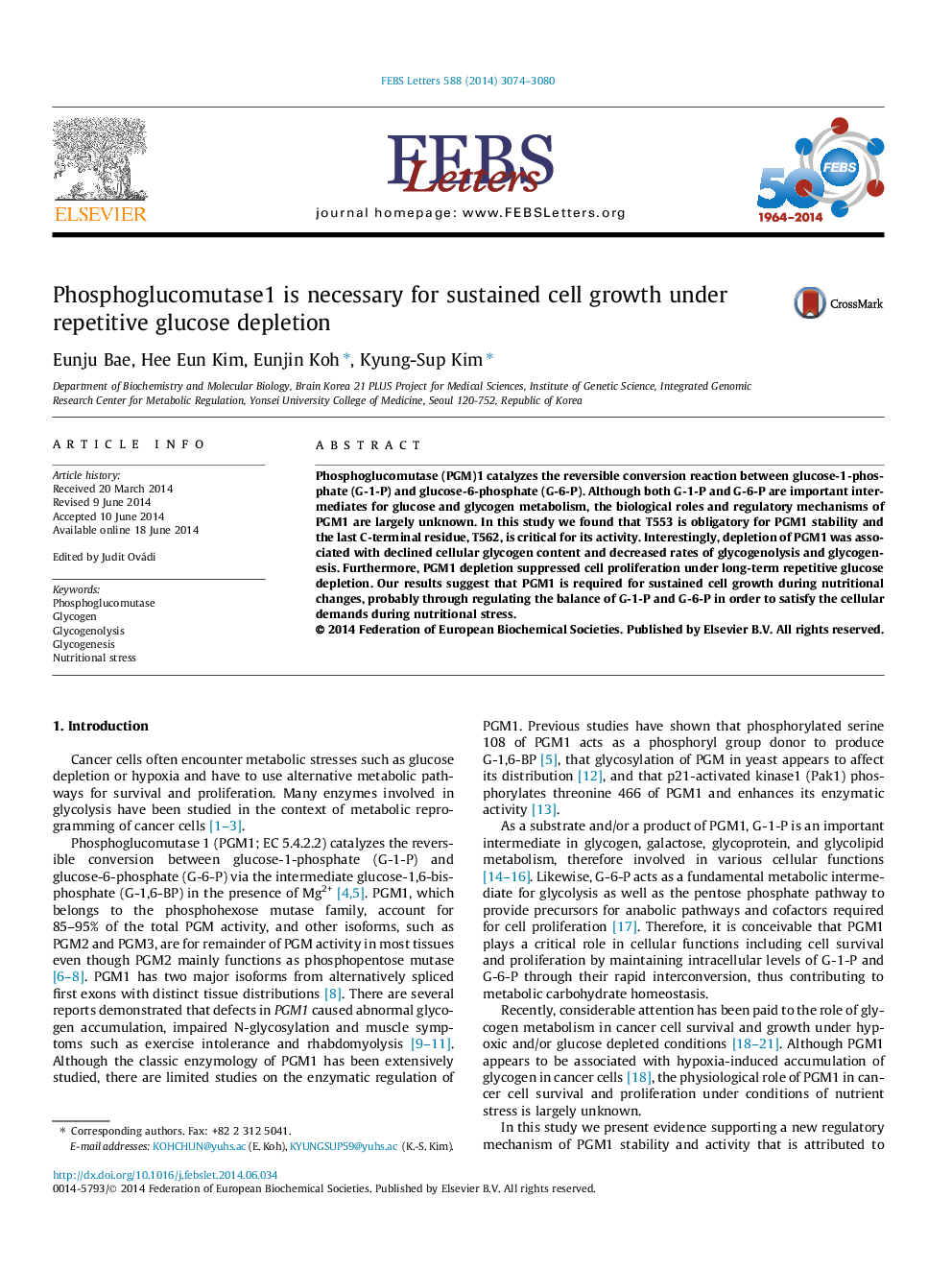| Article ID | Journal | Published Year | Pages | File Type |
|---|---|---|---|---|
| 10870177 | FEBS Letters | 2014 | 7 Pages |
Abstract
Phosphoglucomutase (PGM)1 catalyzes the reversible conversion reaction between glucose-1-phosphate (G-1-P) and glucose-6-phosphate (G-6-P). Although both G-1-P and G-6-P are important intermediates for glucose and glycogen metabolism, the biological roles and regulatory mechanisms of PGM1 are largely unknown. In this study we found that T553 is obligatory for PGM1 stability and the last C-terminal residue, T562, is critical for its activity. Interestingly, depletion of PGM1 was associated with declined cellular glycogen content and decreased rates of glycogenolysis and glycogenesis. Furthermore, PGM1 depletion suppressed cell proliferation under long-term repetitive glucose depletion. Our results suggest that PGM1 is required for sustained cell growth during nutritional changes, probably through regulating the balance of G-1-P and G-6-P in order to satisfy the cellular demands during nutritional stress.
Related Topics
Life Sciences
Agricultural and Biological Sciences
Plant Science
Authors
Eunju Bae, Hee Eun Kim, Eunjin Koh, Kyung-Sup Kim,
